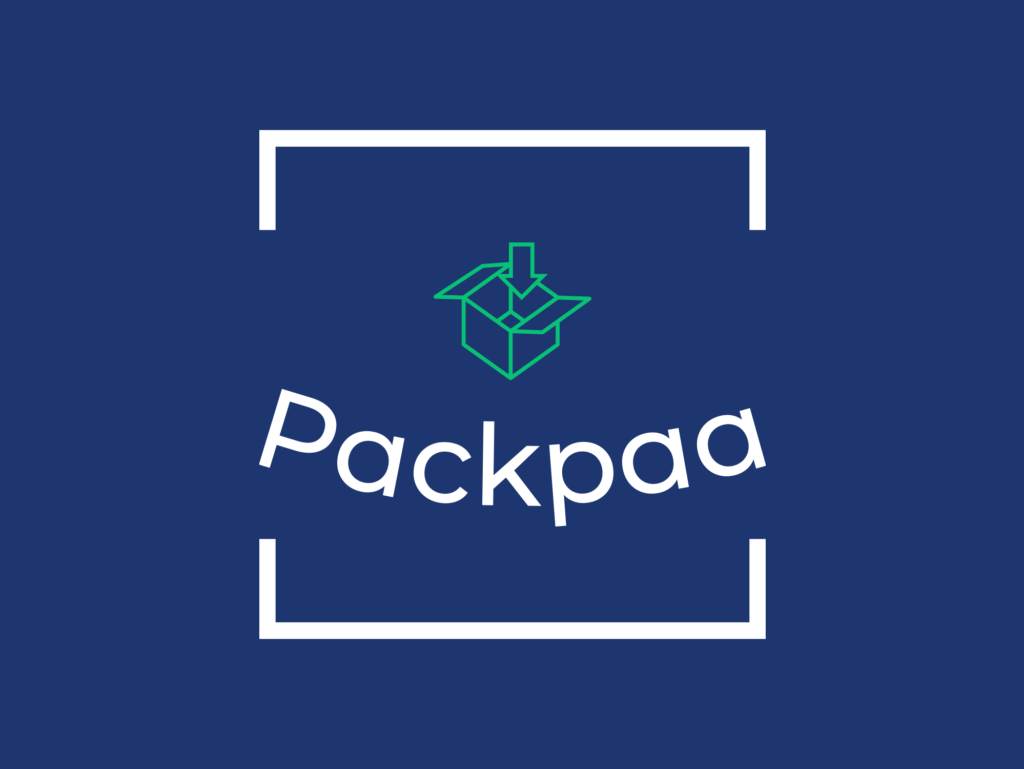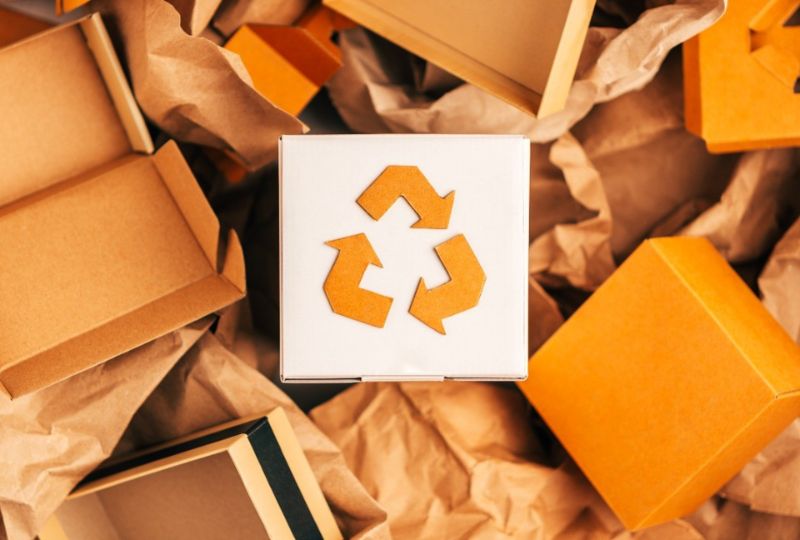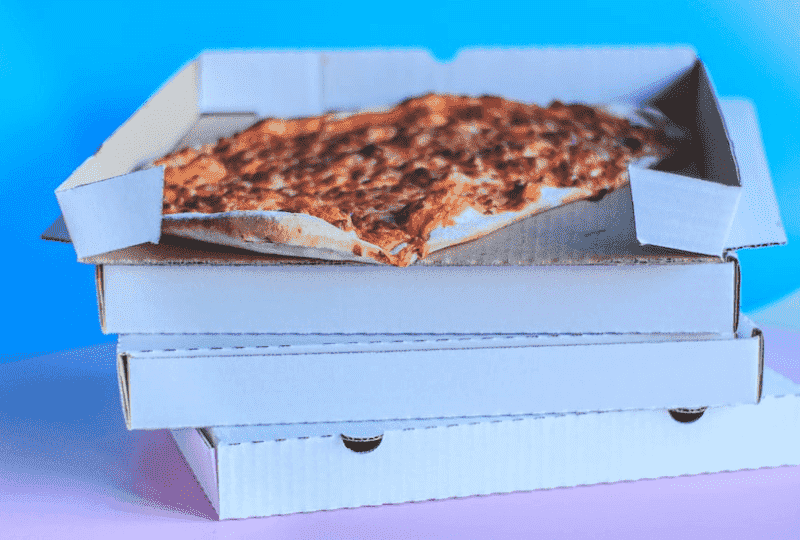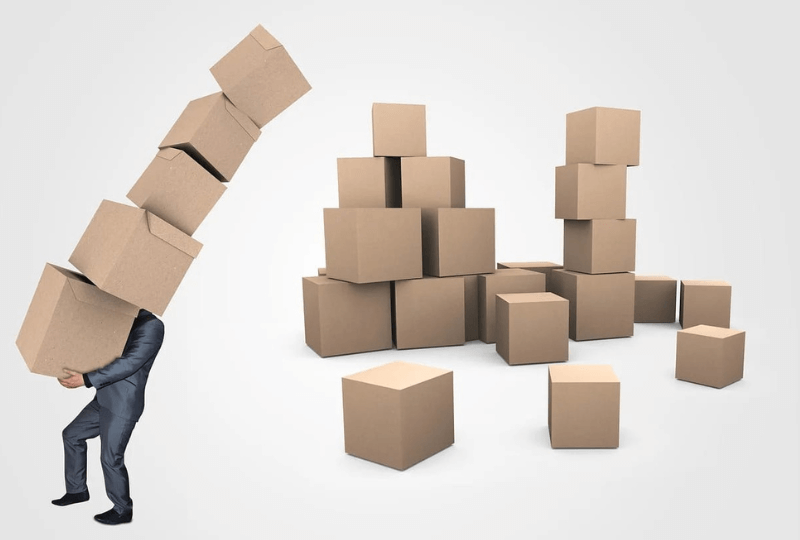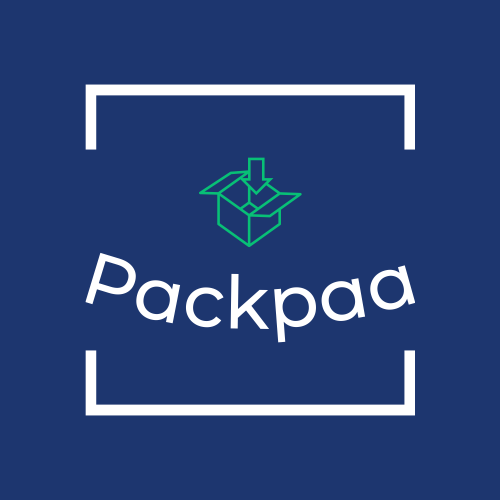Recycled packaging has become very popular recently as people all over the world look for environmentally friendly options. But what exactly is it? This guide will talk about what recycled packaging is, how it helps, and how it affects the world. We give people around the world the power to make eco-friendly Packaging choices for a better future by taking the mystery out of recycled packaging.
Table of Contents
ToggleUnderstanding Recycled Packaging:
Recycled packaging involves materials previously used and repurposed into new packaging products. Instead of tossing these materials after their first use, they undergo collection, sorting, cleaning, and transformation into fresh packaging materials. These materials include paper, cardboard, plastic, glass, and metal, each offering unique recycling possibilities.
Exploring Types of Recycled Packaging:
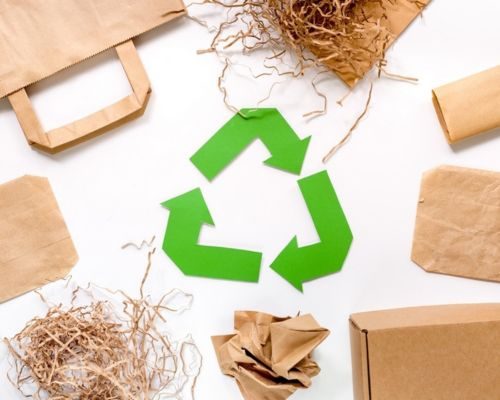
Here are the major 4 types (Paper and CardBoard, Plastic, Glass, Metal)of Recycled Packaging.
- Paper and Cardboard: From newspapers to cardboard boxes, paper and cardboard are commonly recycled packaging materials. They’re pulped, processed, and shaped into new packaging items like boxes and paper bags.
- Plastic: Recycling plastic entails gathering used containers, bottles, and packaging materials. These plastics are sorted, cleaned, and melted to create new products, reducing the need for new plastic production and combating plastic pollution.
- Glass: Glass packaging, such as bottles and jars, gets a new lease on life through recycling. Collected, sorted, cleaned, and melted, recycled glass helps conserve resources and reduce energy consumption compared to manufacturing from scratch.
- Metal: Highly recyclable metal packaging, like aluminium cans and steel containers, undergoes collection, sorting, and melting to produce new metal products, conserving energy and cutting greenhouse gas emissions.
Read More: Frustration-Free vs Standard Packaging
What are The Benefits of Recycled Packaging?
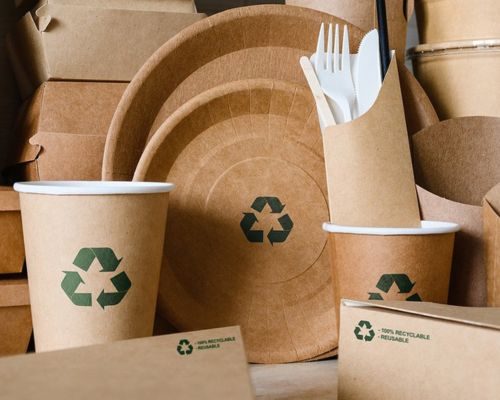
- Resource Conservation: Recycling packaging materials reduces the need for raw materials extraction, preserving natural resources like forests and water while lowering energy consumption.
- Waste Reduction: By diverting materials from landfills or incinerators, recycling packaging minimises environmental pollution and conserves landfill space.
- Energy Savings: Recycling packaging requires less energy than producing from virgin resources, resulting in significant energy savings and environmental benefits.
- Greenhouse Gas Emissions Reduction: Recycling materials like plastic, glass, and metal helps mitigate greenhouse gas emissions associated with packaging production, aiding in climate change mitigation. You may also like to read Make A Pizza Box in Just 4 Steps.
Impact of Recycled Packaging:
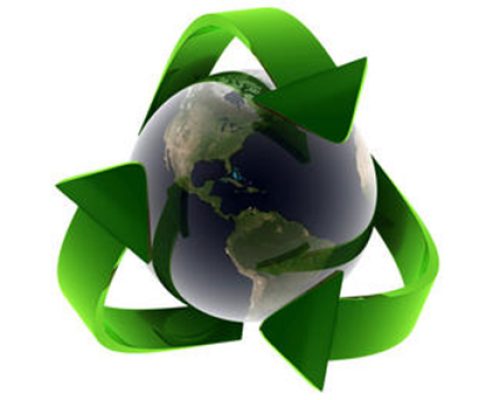
- Environmental Protection: Recycling packaging materials safeguards ecosystems, biodiversity, and mitigates climate change, reducing pollution, deforestation, habitat destruction, and carbon emissions. You can also see Helpful New Mom Care Package Ideas.
- Circular Economy Promotion: Adopting recycled packaging promotes the transition to a circular economy, where resources are used efficiently, waste is minimized, and sustainability is fostered.
- Consumer Awareness: Advocating for recycled packaging raises consumer awareness about sustainable consumption and waste reduction, empowering them to support eco-friendly brands and drive positive environmental change.
Conclusion:
In conclusion, recycled packaging is crucial for promoting sustainability, reducing waste, and preserving the environment. By understanding recycled packaging and its benefits, individuals worldwide can make informed choices for a greener future. As consumers and businesses prioritize environmental responsibility, recycled packaging becomes a fundamental element in shaping a healthier planet for future generations.
Read Our Latest Guides:
FAQs:
Yes, recyclable packaging is beneficial because it can be reused or processed into new products, reducing waste and conserving resources.
100% recycled means that all the material used in the packaging has been previously used and repurposed, contributing to a closed-loop recycling system.
Yes, recycled plastic can be safe for food packaging if it meets regulatory standards and undergoes proper processing to ensure cleanliness and safety.
Packaging that cannot be recycled includes items contaminated with food residue, certain types of plastic films, mixed-material packaging, and items labeled as non-recyclable by local recycling facilities.
Yes, recycled products are good because they help reduce waste, conserve resources, and lower energy consumption compared to products made from virgin materials.
To determine if packaging is recyclable, look for recycling symbols such as the chasing arrows symbol with a number indicating the material type. Additionally, check local recycling guidelines or contact your waste management facility for specific instructions.

Meet Mary K, the talented author behind PackPaa. With a passion for innovative packaging solutions, Mary shares insights and expertise to elevate your business.













